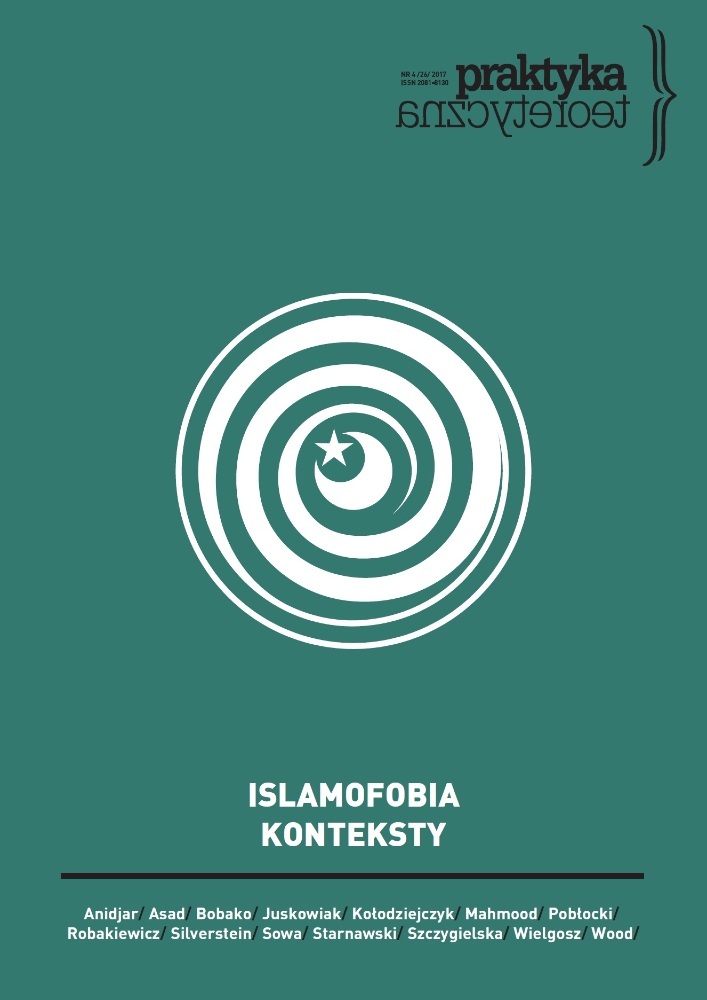Abstract
Autorka pokazuje w swoim artykule, że historia kapitalistycznego rynku nierozerwalnie wiąże się z bezprecedensowym w historii użyciem siły i przemocy. Takie konsekwentne spojrzenie na rynek pozwala inaczej interpretować przejście z porządku feudalnego do kapitalistycznego. Autorka wskazuje, że nie było ono „wyzwoleniem” spod feudalnych okowów, ale przeciwnie – wiązało się z podporządkowaniem rynkowym imperatywom produkcji kapitalistycznej, które wynikało nie tyle z technologicznego postępu czy nieomal ponadhistorycznych praw, ale z przekształceń społecznych stosunków własności między chłopami a panami w Anglii. Proponowane w artykule ujęcie kapitalistycznego rynku stawia też w innym świetle przeciwstawione mu alternatywy polityczne.References
Brenner, Robert. 1985. „Agrarian Class Structure and Economic Development in Pre-Industrial Europe”. W The Brenner Debate: Agrarian Class Structure and Economic Development in Pre-Industrial Europe, red. T.H. Aston i C.H.E. Philpin. Cambridge: Cambridge University Press.
Brenner, Robert. 1989. „Bourgeois Revolution and Transition to Capitalism”. W The First Modern Society, red. A.L. Beier i David Cannadine. Cambridge: Past and Present Publications.
Comninel George. 1987. Rethinking the French Revolution: Marxism and the Revisionist Challenge. London: Verso.
Fusfeld, Daniel. 1993. „The Market in History”. Monthly Review 45.
Hilton, Rodney (red.). 1976. The Transition from Feudalism to Capitalism. London: New Left Books.
Kerridge, Eric. 1988. Trade and Banking in Early Modern England. Manchester: Manchester University Press.
McNally, David. 1994. Against the Market. London: Verso.
Meiksins Wood, Ellen. 1995. Democracy Against Capitalism: Renewing Historical Materialism. Cambridge: Cambridge University Press.
Pirenne, Henri. 1952. Medieval Cities: Their Origins and the Revival of Trade. Princeton: Princeton University Press.
Polanyi Karl. 2010. Wielka transformacja: polityczne i ekonomiczne źródła naszych czasów. Tłum. Maria Zawadzka. Warszawa: Wydawnictwo Naukowe PWN.
Thompson, E.P. 1991. Customs in Common. London: Penguin Books.
License
“Theoretical Practice” seeks to put into practice the idea of open access to knowledge and broadening the domain of the commons. It serves the development of science, thinking and critical reflection. The journal is published in open-access mode under the CC-BY-NC-SA 4.0 license (detail available here: http://creativecommons.org/licenses/by-nc-sa/4.0/). Articles published in the journal may be freely distributed, stored, printed and utilized for academic and teaching purposes without restrictions.
They should not be, however, used for any commercial purposes or be reconstructed into derivative creations. Access to the journal may not be limited or offered for a fee by any third party.
Prospective authors are obliged to fill in, sign and send back the publishing contract compliant with the CC licencing. [PL.pdf, PL.doc, EN.pdf,EN.doc].
According to this contract, authors grant the journal a non-exclusive right to publish their work under the creative commons license (CC-BY-NC-SA 4.0) without any financial obligation on both sides of the contract.
Before submission authors should make sure that derivative materials they use are not protected by copyright preventing their non-commercial publication. Authors are responsible for any respective copyright violations.
